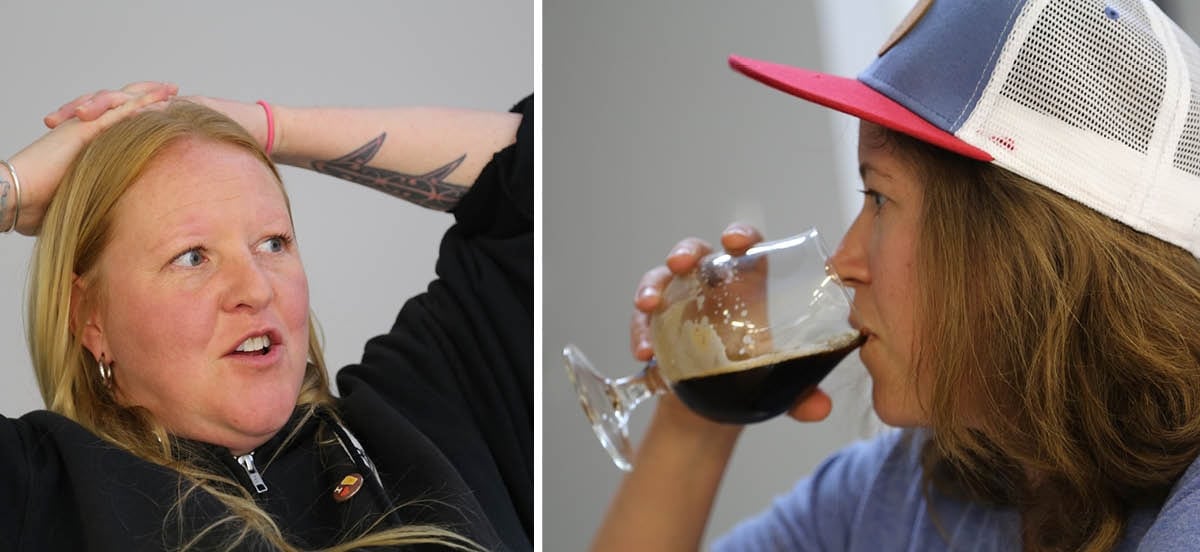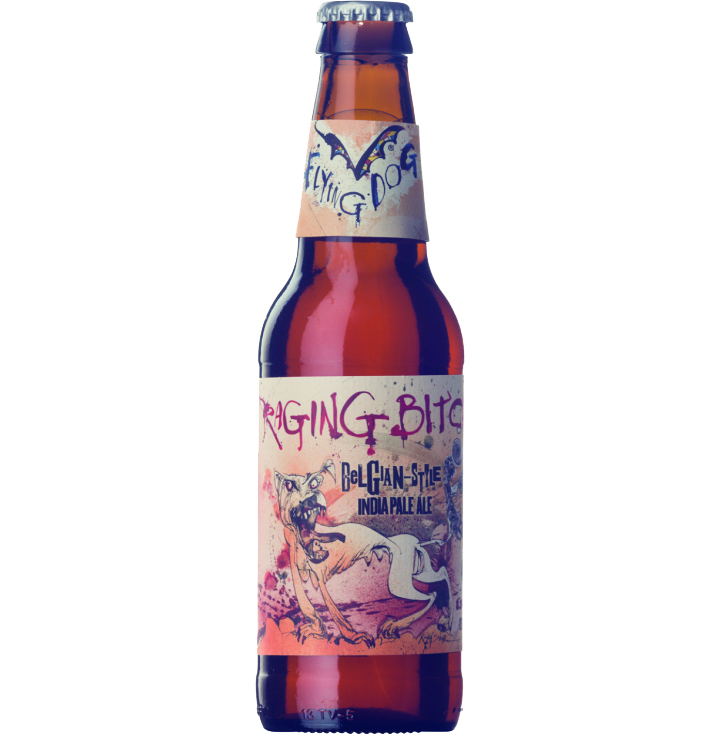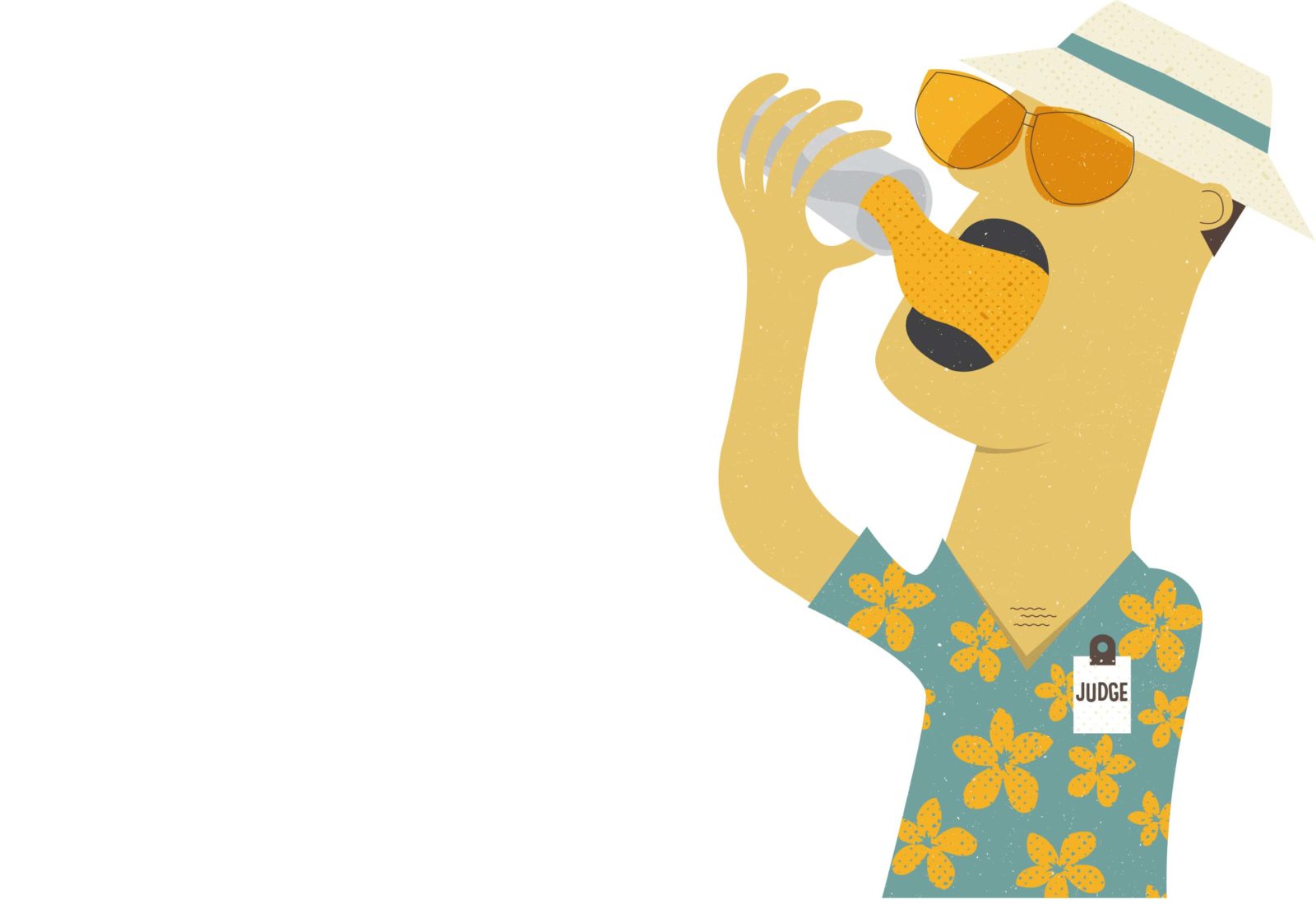We’ve had some emails about this series, oh yes.
“Can you feature some Vancouver Island breweries?” you’ve asked.
“How about some women for once?” you’ve pleaded.
And so, we’ve heeded your calls and invited Chloe Smith, co-founder of Townsite Brewing – a woman brewer and small-town small business owner – to speak with Aly Tomlin, co-founder of Chemainus’ Riot Brewing, who also happens to be a woman brewer and small-town business owner.
The two met for the very first time in July at Tomlin’s still-under-construction brewery, which would be open the following month after six years of planning and multiple false starts. The impending opening loomed large over the conversation, which dealt largely with the ins and outs of owning a small brewery outside of Vancouver.
They hardly addressed the issue of being women in a male-dominated industry because, from each perspective, it’s never been an issue. As Smith says. “When people ask me what it’s like to be a woman in the beer industry, I want to say, ‘It’s like being a woman eating breakfast.’ It’s neither here nor there.”
So there you have it. Enjoy?
Chloe Smith: I spoke at an economic development summit recently and I had representatives from three different towns in BC come up to me afterward and say, “How do I get a brewery in my town?” They were from some small town up in the Interior, from Hope and somebody on the Island. Hope would be amazing.
When we opened – and we’re dinosaurs now, four years ago was the dark ages – people were drinking a lot of craft beer, but it wasn’t about craft beer coming to your town and changing the whole dynamic. We really had to fight for that, for sure.
Aly Tomlin: You know the days when we were looking for a home, we came to Powell River, we looked in Campbell River, we moved to Duncan with the plan to open a brewery down there, and it just did not work.
The person who supported us [in Duncan] was the lady at economic development. I called her and said, “Thanks for all your help, this is not working, I know you really want us to stay but we’re moving on.”
She said, “Oh no, you can’t you’re so important to the Cowichan Valley. Just give me a couple days.” So the next day, [a representative] from Chemainus called us and said, “We want you to open here.”
That’s made a huge difference. We fucked up because we picked a city not knowing if the city wanted us. It’s a lot different when the city wants us.
CS: And is willing to work with you. Totally. I think the industry has changed, too. It’s changing really rapidly and people realize the importance of it now.
AT: It’s changing insanely.
CS: Insanely, yeah. That’s been the hardest part for me, I think, just trying to manage the demand and the logistics, but also the regulatory stuff that changes so quickly, and the administrative hours in figuring that shit out.
AT: You don’t just sit there and wait for Ken [Beattie, BC Craft Brewers Guild executive director]’s emails?
CS: [Laughs] I try to be a little more proactive than that!
AT: We don’t have to be yet, and I think he’s doing a great job of keeping people in the loop.
CS: It is time for a national association. It’s ridiculous that we’re not nationally united.
AT: Sure, but for now I think Ken has done a great job for what limited resources he has.
I actually need to give him money. I went to pay the dude [for annual fees?] and he was like, “We don’t take credit card, only take cash.” I was like, OK dude, we’re not even open, so I don’t have $500 cash to give you. [Laughs] So I couldn’t pay him, but he still gives me all the emails. I’m like a pseudo-member until I have the cash.
Seriously though – what kind of organization doesn’t take credit cards? Ken, if you see this, get with the routine. What age do we live in?
So you’re a brewer at Townsite?
CS: Oh yeah. The stout and the pale ale are my recipes. I brewed the first Sun Coast Pale Ale, and I was on the bottling line the other day. You know what it’s like running a small business – everyone does everything.
AT: That’s how it’s going to be here.
CS: And I miss brewing, for sure.
AT: I think it kind of sets us – because it’s the same kind of situation for us, I’m a brewer too – it really gives us the upper hand. You see a lot of breweries opening up these days, and they’re lawyers or marketing dudes thinking, “This is cool, let’s open a brewery.”
It’s way harder to screw us over. If you’re a brewer working for a dude who has no experience, you can be taken so much easier. I think it’s cool because there aren’t many breweries these days –
CS: – being open by brewers.
AT: How many breweries during this renaissance of the last couple of years have been opened by brewers? Strange Fellows? Parkside?*
CS: I can’t even name the brewers that have opened the last four years.
AT: I read the Growler and I’m like, I don’t know these people! Where did they come from?
CS: A brewery opened in Vancouver last week! Like, what?
AT: I don’t understand what’s going on.
CS: It’s insane.
AT: It’s funny. If we opened when we wanted to, we would’ve been right after Driftwood.
CS: Oh really? Yeah, I knew I wanted to do this right away. As soon as I walked onto a brewery floor, I was like, yup, I’m going to open my own one day. For sure. I have to.
AT: That was like when I walked out of my job.
CS: Where was that? At R&B?
AT: Yeah. Then I thought, “I can’t wait to get a paycheque and buy some new shoes.” I just want to be human again.
CS: You’ll probably spend your money on new kegs. You can never have enough.
AT: It’s been kind of a hard road. Ralph [Rosenke, Aly’s business partner] and I were sweeping parking lots, we were painting houses, we were doing anything we could just to pay our mortgage. Now we’re living on credit cards.
CS: [groans sympathetically] It’s coming.
AT: It’s been a long fucking journey and I can’t wait for it to be over. I know running the business side is going to be hard, but it can’t be harder than trying to get open.
CS: What’s been the hardest part? Getting the money together?
AT: Yeah, the money.
CS: For us, it was the regulations: B.C., LDB, BCLD and the town.
AT: Really? The town surprises me.
CS: It confused people. It was in Powell River four years ago. That’s like 47 years ago. [laughs]. It was like, “A brewery. That’s never happened here. What is it? What are you talking about?”
GROWLER: How long did it take for the community to embrace Townsite?
CS: I think there are two facets to that. I think it was immediate for the people who still remain our loyal fans, and it was over the process of that first year to convince everybody else. We just have a very dedicated sales woman who would go in there and be like, “You can say no to my face but it doesn’t mean anything. I’m going to find a way.”
We threw so many events putting bums in seats and emptying taps, and knocking down doors of businesses in town. We went out all the time, and still do. That’s kind of helpful as a person in the beer industry – we tend to be very gregarious and out in the public anyway. This industry just attracts those people, so you end up going for dinner in the restaurants of your customers all the time. That gives them goodwill and it just snowballs from there.
GROWLER: Did you brew beer specifically to attract those other folks, or were you like, “We’re going to make this beer and you’re going to like it!”
CS: We opened with the blonde ale, a pale ale, an IPA and the porter. The business plan was the four mainstays. We made a huge mistake by thinking that most of our business would be in Vancouver while we educated the Sunshine Coast. We never should’ve done that, because instead of growing naturally and slowly we just kind of exploded everywhere and that caused all kinds of problems.
AT: Did you pull out?
CS: No. We just gritted out teeth and dealt with it.
GROWLER: What was the problem?
CS: Just too much demand and too many logistical problems getting beer to market, just because of where we are.
* Editor’s Note: Nine professional brewers have founded or co-founded breweries since 2012, and over two dozen more by homebrewers with no previous professional experience.





